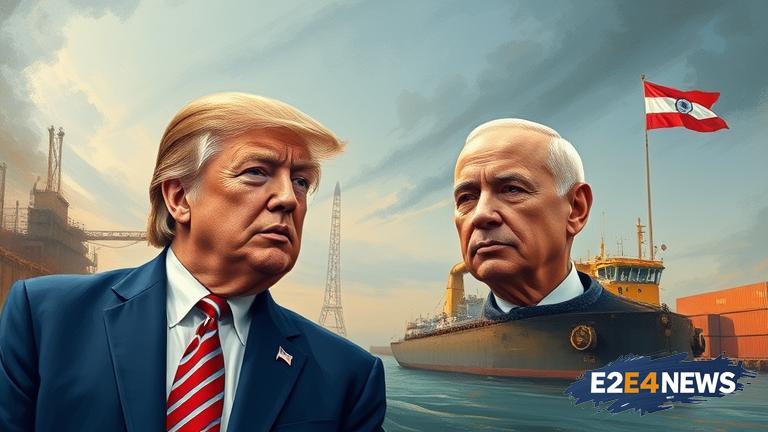The United States and India are embroiled in a trade dispute, with President Trump threatening to impose harsh tariffs on India due to its continued purchases of Russian oil. This move is seen as a significant escalation of tensions between the two nations, with potentially far-reaching consequences for global trade. The US has been critical of India’s decision to purchase oil from Russia, despite international sanctions imposed on the country following its invasion of Ukraine. Trump has stated that the US will not tolerate India’s actions, and will take swift and severe action to protect American interests. The threat of tariffs has sent shockwaves through the Indian economy, with many businesses and industries expressing concern about the potential impact on trade and investment. The Indian government has thus far refused to back down, stating that it will continue to prioritize its own economic interests and make decisions based on its own national security concerns. The dispute has also sparked a wider debate about the role of the US in global trade, with some critics arguing that the country is using its economic power to bully and coerce other nations into complying with its demands. Others have pointed out that the US has a long history of imposing tariffs and trade restrictions on other countries, often with devastating consequences for local economies. The situation is further complicated by the fact that India is a key strategic partner for the US in the region, and the two countries have a long-standing relationship based on mutual cooperation and respect. Despite this, the US has made it clear that it will not hesitate to take action against India if it continues to purchase oil from Russia. The Indian government has responded by stating that it will explore alternative sources of oil and energy, but this may not be enough to appease the US. The dispute has also sparked concerns about the potential impact on global energy markets, with some analysts warning that a trade war between the US and India could have far-reaching consequences for the price and availability of oil. The situation is being closely watched by other countries, including China, which has its own significant trade relationships with both the US and India. The Chinese government has thus far remained silent on the issue, but it is likely that the country will be closely monitoring developments and looking for opportunities to exploit any weaknesses in the US-India relationship. The US-India trade dispute is just the latest example of the increasingly complex and fraught nature of global trade, with countries around the world struggling to navigate a web of competing interests and alliances. As the situation continues to unfold, it remains to be seen whether the US and India will be able to find a resolution to their differences, or whether the dispute will escalate into a full-blown trade war. The consequences of such a war would be severe, with potentially devastating impacts on businesses, industries, and economies around the world. The US and India must work together to find a solution that balances their competing interests and priorities, and avoids a catastrophic trade war that would have far-reaching consequences for global stability and prosperity. The international community is watching the situation closely, and urging both countries to engage in constructive dialogue and negotiation to resolve their differences. The US-India trade relationship is critical to the stability and prosperity of the global economy, and it is essential that both countries work together to find a solution that benefits all parties involved. The dispute has also highlighted the need for greater cooperation and coordination between countries on issues related to trade, energy, and national security. The US and India must prioritize their shared interests and work together to address the complex challenges facing the global economy, rather than allowing their differences to escalate into a destructive trade war. The situation is a reminder that global trade is a complex and multifaceted issue, requiring careful diplomacy, negotiation, and cooperation to resolve. The US and India have a long history of cooperation and friendship, and it is essential that they work together to find a solution that strengthens their relationship and promotes global stability and prosperity.





